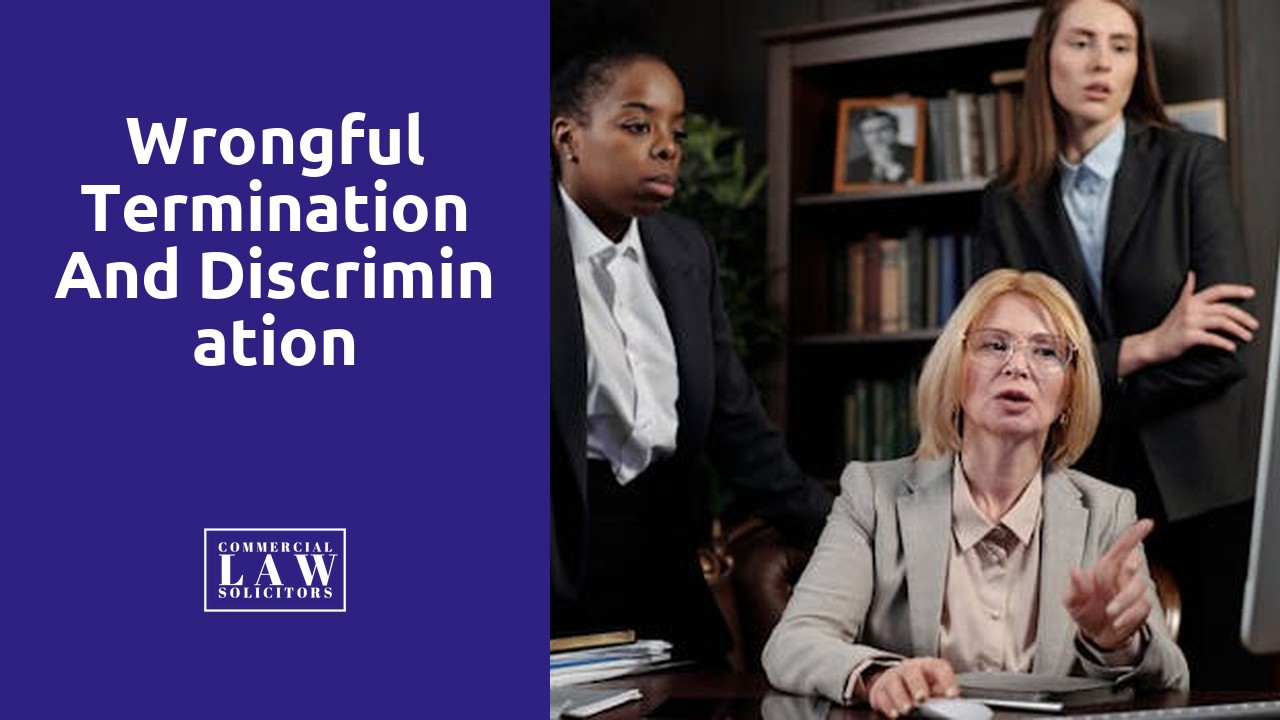Wrongful Termination and Discrimination

Unjust Workplace Practices: Uncovering Unfair Treatment
Uncovering workplace injustices is a critical step towards ensuring fairness and equality in the professional realm. It is essential for employees to be aware of the various forms of unfair treatment that can occur within the workplace. From unequal pay to biased promotion practices, these injustices can have a profound impact on an individual's career and well-being.
One of the most pervasive unjust workplace practices is discrimination based on gender, race, or other protected characteristics. Despite efforts to promote diversity and inclusion, many individuals still face prejudice and bias in their daily work lives. The effects of such discrimination can be seen in lower job satisfaction, limited opportunities for growth, and even mental health issues. As we strive for a more inclusive society, it is crucial that we shine a light on these injustices and take action to rectify them.
Uncovering Workplace Injustices: A Closer Look
Uncovering workplace injustices requires a closer look at the various forms of unfair treatment that can occur within organizations. One common issue is unequal pay, where employees doing the same job are paid different salaries based on their gender, race, or other arbitrary factors. This not only creates a sense of inequality among colleagues, but also perpetuates systemic biases that hinder career growth and advancement opportunities for marginalized groups.
Another form of workplace injustice is the prevalence of discriminatory practices during hiring processes. Unconscious biases can often lead employers to favor certain candidates based on their background, appearance, or even their social connections. This not only disregards merit and qualifications, but also denies equal opportunities to deserving individuals, leading to a lack of diversity and representation in the workplace. By uncovering these injustices and shedding light on them, organizations can take steps to address and rectify these practices, paving the way for a fair and inclusive work environment.
Fighting for Fairness: Advocating Against Unlawful Employment Practices
In the fight for fairness and justice in the workplace, it is crucial to advocate against unlawful employment practices. These practices, such as discrimination, harassment, and unfair dismissals, not only harm individuals but also perpetuate a toxic work environment. By advocating for change, we can strive towards creating workplaces that are inclusive, respectful, and equitable for all employees.
Advocating against unlawful employment practices requires a commitment to raising awareness and educating both employers and employees about their rights and responsibilities. It involves promoting policies and procedures that protect individuals from discrimination and other forms of mistreatment. By working together, we can empower those who have been affected by unfair practices and hold employers accountable for their actions.
The Dark Side of Employment: Exploring Unfair Dismissals
Unfair dismissals are a grave concern in the world of employment. They occur when an employee is terminated from their position without justifiable cause or due process. This unjust practice not only affects the individual who is being dismissed, but it also undermines the trust and faith that employees have in their employers.
One of the most alarming aspects of unfair dismissals is that they often go unnoticed or unreported. Many employees may fear retribution or believe that they have no recourse when faced with an unjust dismissal. This creates a culture of silence, where employees suffer in silence, and the perpetrators evade accountability. It is essential to shine a light on these dark practices and fight for fair treatment in the workplace. Only by uncovering and exposing these injustices can we begin to create a system that respects the rights and dignity of every employee.
Breaking Down Barriers: Understanding Workplace Bias
Workplace bias is a pervasive issue that continues to hinder progress and create barriers in our society. It refers to the unfair treatment of individuals based on their gender, race, age, disability, or any other characteristic that sets them apart from the dominant group. Such biases can manifest in various ways, from subtle microaggressions to overt discrimination. This not only creates a toxic work environment but also hampers the growth and potential of those affected. It is essential to understand workplace bias, its impact, and how we can dismantle these barriers to create a more inclusive and equitable workplace for everyone.
Recognizing workplace bias requires a deep understanding of both explicit and implicit biases that shape our perceptions and behaviors. Explicit biases are conscious beliefs or attitudes that individuals hold towards others, often resulting in discriminative actions. On the other hand, implicit biases are more subtle and unconscious, formed through societal norms, stereotypes, and conditioning. These biases can seep into everyday workplace interactions, leading to unequal opportunities, unfair evaluations, and the perpetuation of stereotypes. Overcoming workplace bias begins with education, creating awareness, and fostering a culture of open dialogue where biases can be addressed and challenged. Only through collective effort and conscious action can we truly break down the barriers of bias and foster an inclusive work environment.
Standing Up Against Inequality: Challenging Discriminatory Practices
Discriminatory practices in the workplace are an unfortunate reality that many individuals face on a daily basis. From unequal pay to biased hiring practices, the effects of workplace discrimination can be detrimental to both the individual and the overall dynamics of the organization. However, it is essential to acknowledge that change is possible and that challenging these discriminatory practices is crucial.
One way to combat workplace inequality is through advocacy and activism. By actively speaking out against discriminatory practices and raising awareness about the impact they have, individuals can encourage a shift in attitudes and behaviors. This can be done through various means such as participating in protests, engaging in social media campaigns, or joining organizations that focus on fighting workplace discrimination. It is important to remember that standing up against inequality requires courage and perseverance, but the potential for positive change makes it all worthwhile.
Related Links
Wrongful Termination and RetaliationRemedies Available for Wrongful Termination
Steps to File a Wrongful Termination Lawsuit
Wrongful Termination and Whistleblowing
Employer Defenses in Wrongful Termination Lawsuits